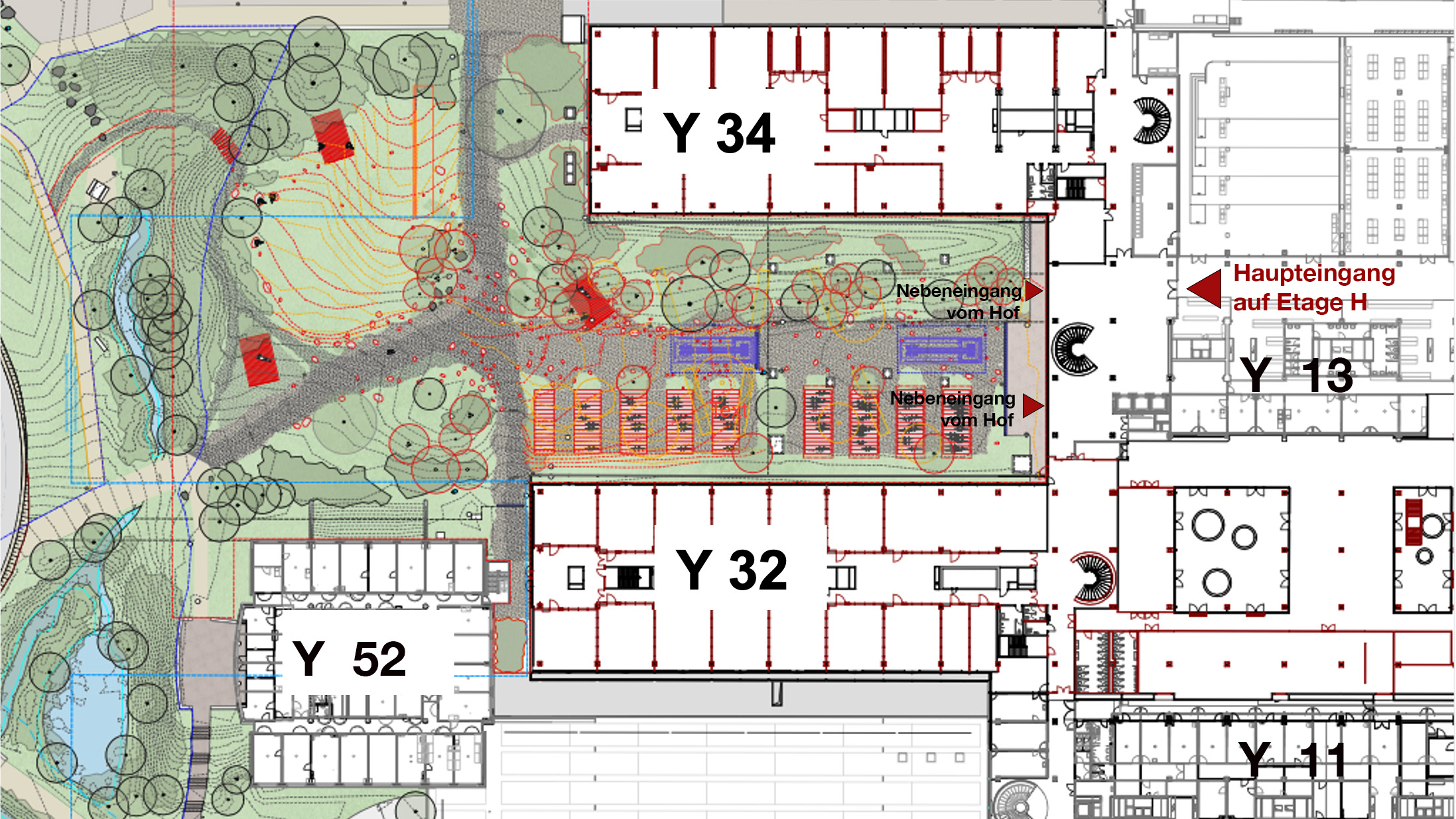Navigation auf uzh.ch
Navigation auf uzh.ch

This move brings UZH and Zurich’s upper secondary schools closer than ever before. In about four months, Kantonsschule Zürich Nord (KZN) will be the first Zurich high school to move into two specially converted buildings on Irchel Campus until 2027. Another four high schools will follow in two three-year cycles until July 2033, while their respective school buildings are renovated.
In close collaboration with the high schools and the Department of Education, UZH has prepared for a smooth interim use. However, the relocation of KZN and the start of the fall term with over 2,000 pupils on 19 August present a challenge for the university and its infrastructure. Last week, the Executive Board of the University held a town hall meeting to provide information, answer questions and promote dialogue. The meeting offered UZH members the opportunity for constructive exchange.
Sharing a campus between a university and a high school is a unique situation in Switzerland. As President Michael Schaepman emphasized at the start of the event, it also presents a special opportunity: “We have the opportunity to experience a new educational campus.” Proximity not only fosters mutual understanding, it also creates a space for collaboration in learning, teaching, research and experimentation. Nonetheless, an integrated campus also poses challenges. “Meticulous planning does not necessarily guarantee that everything has been considered,” stated Schaepman. Not everything can be predicted or planned in detail, and he does not consider this the objective. Adapting to everyday life will require patience from everyone. “Be generous, tolerant, curious, open-minded and interested – particularly at the beginning. It is our shared goal to shape this open campus together.”
Andreas Niklaus, principal of Kantonsschule Zürich Nord, introduced his school, which he compared to a considerable SME due to its size. KZN is the largest upper secondary school in Switzerland, with 2,275 pupils, 96 classes and 300 teachers. It comprises both long and short-term secondary school programs, as well as a technical high school.
The school will occupy buildings Y12, Y32 and Y34, with its own schoolyard located between Y32 and Y34. The buildings previously used by UZH chemists have been repurposed. Y34 now houses specialized rooms for science, musical and art lessons, as well as the school administration. Y32 contains the general classrooms. The school community will also utilize the UZH connecting corridors to move between floors and wings. The timetable has been designed to minimize room changes. Andreas Niklaus reports that preparations for the move are in full swing: “We’re excited about this excellent location, which provides new opportunities to support our students.” The proximity to the university offers high school students a glimpse of university life.
Gabriele Siegert elaborated on the concept of mutual learning and highlighted how the integrated campus will not only provide a common daily routine, but also enable the pursuit of shared interests. According to the Vice President Education and Student Affairs, “joint projects between UZH and high schools foster understanding and trust.” With funding from the Department of Education of the canton of Zurich, project ideas will be implemented that promote subject-specific and interdisciplinary skills, strengthen collaboration between teachers and teaching staff and inspire university students to pursue a career in teaching. For instance, university students can acquire valuable teaching experience, while pupils can benefit from the expertise of UZH members for their Matura theses. During open lecture hall weeks, high school students can gain insights into selected lectures and degree programs. Siegert encouraged all participants of the event to propose projects and actively engage in them.
Daniel Hug, the Vice President Finance, presented measures related to catering and sports. Importantly, the school will have its own cafeteria. In addition, a food truck park will be established at Strickhof, and the instructors’ foyer will be opened for self-catering to alleviate congestion in the UZH cafeteria. A temporary sports facility with two gyms, three multifunctional rooms and separate changing rooms will be built on the Irchel West site for the 300 or so sports lessons at the KZN; the existing gyms will also be available. The ASVZ program will have to adjust its scheduling; the sports and fitness courses that previously took place during the day will now be held in the evenings and on weekends. However, Hug assured that the regular sports program will continue to take place for everyone, albeit at different times in some cases.

Last but not least, François Chapuis, Vice President Real Estate and Facility Management, presented the longer-term structural development of Irchel Campus. The new PORTAL UZH building plays a key role in this. Its construction can be brought forward thanks to the interim use of the former chemistry buildings by the Zurich high schools and is due to begin in 2030. The buildings of the first construction phase, UZI 1, from the 1970s, including the temporarily used premises, will undergo complete renovation after the completion of PORTAL UZH and the relocation of the high schools back to their own buildings.
After the presentations, the audience had the opportunity to ask the speakers questions about the interim use. Here is a summary: